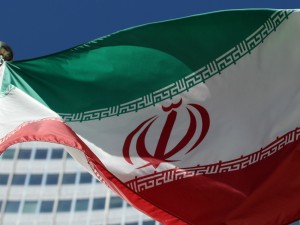
U.S. officials conclude Iran deal violates federal law
Some senior U.S. officials involved in the implementation of the Iran nuclear deal have privately concluded that a key sanctions relief provision – a concession to Iran that will open the doors to tens of billions of dollars in U.S.-backed commerce with the Islamic regime – conflicts with existing federal statutes and cannot be implemented without violating those laws, Fox News has learned.
At issue is a passage tucked away in ancillary paperwork attached to the Joint Comprehensive Plan of Action, or JCPOA, as the Iran nuclear deal is formally known. Specifically, Section 5.1.2 of Annex II provides that in exchange for Iranian compliance with the terms of the deal, the U.S. “shall…license non-U.S. entities that are owned or controlled by a U.S. person to engage in activities with Iran that are consistent with this JCPOA.”
In short, this means that foreign subsidiaries of U.S. parent companies will, under certain conditions, be allowed to do business with Iran. The problem is that the Iran Threat Reduction and Syria Human Rights Act (ITRA), signed into law by President Obama in August 2012, was explicit in closing the so-called “foreign sub” loophole.
Indeed, ITRA also stipulated, in Section 218, that when it comes to doing business with Iran, foreign subsidiaries of U.S. parent firms shall in all cases be treated exactly the same as U.S. firms: namely, what is prohibited for U.S. parent firms has to be prohibited for foreign subsidiaries, and what is allowed for foreign subsidiaries has to be allowed for U.S. parent firms.
What’s more, ITRA contains language, in Section 605, requiring that the terms spelled out in Section 218 shall remain in effect until the president of the United States certifies two things to Congress: first, that Iran has been removed from the State Department’s list of nations that sponsor terrorism, and second, that Iran has ceased the pursuit, acquisition, and development of weapons of mass destruction.
Additional executive orders and statutes signed by President Obama, such as the Iran Nuclear Agreement Review Act, have reaffirmed that all prior federal statutes relating to sanctions on Iran shall remain in full effect.
For example, the review act – sponsored by Sens. Bob Corker (R-Tennessee) and Ben Cardin (D-Maryland), the chairman and ranking member, respectively, of the Foreign Relations Committee, and signed into law by President Obama in May – stated that “any measure of statutory sanctions relief” afforded to Iran under the terms of the nuclear deal may only be “taken consistent with existing statutory requirements for such action.” The continued presence of Iran on the State Department’s terror list means that “existing statutory requirements” that were set forth in ITRA, in 2012, have not been met for Iran to receive the sanctions relief spelled out in the JCPOA.
As the Iran deal is an “executive agreement” and not a treaty – and has moreover received no vote of ratification from the Congress, explicit or symbolic – legal analysts inside and outside of the Obama administration have concluded that the JCPOA is vulnerable to challenge in the courts, where federal case law had held that U.S. statutes trump executive agreements in force of law.




